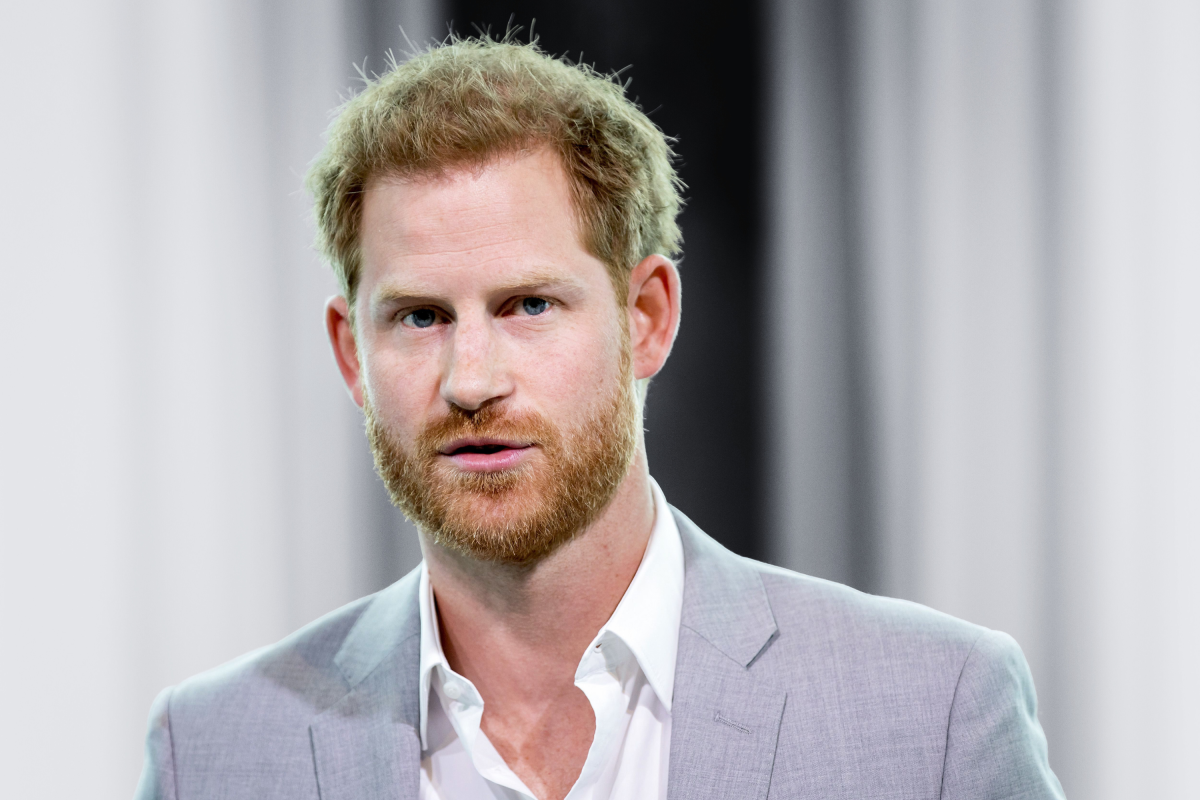Must Read
Prince Harry Faces Growing Backlash Over Pat Tillman Award Controversy
The controversy surrounding Prince Harry and his recent recognition with the Pat Tillman Award continues to escalate, drawing ire from many quarters.
For those unfamiliar, Pat Tillman was a celebrated American football player who turned down a lucrative NFL career to enlist in the U.S. Army Rangers post-9/11, ultimately losing his life in combat under tragic circumstances.
His legacy resonates deeply with many Americans, particularly those who remember the tumultuous early 2000s during the wars in Afghanistan and Iraq.
So, it's no surprise that the decision to honor Prince Harry with an award named after such a selfless figure has left many scratching their heads.
Critics argue that it is inappropriate to award someone who has seemingly prioritized personal gain over a life dedicated to service.
The backlash intensified after Mary Tillman, Pat's mother, publicly expressed her disapproval, questioning why a controversial figure like Harry was chosen for this honor.
While ESPN attempted to clarify its decision, the rationale behind awarding Harry remains tenuous at best.
Many believe that the award should instead recognize the veterans involved in the Invictus Games, the organization Harry co-founded to support injured servicemen and women.
Although the Games are commendable, critics argue that Harry's involvement has overshadowed the true purpose of the event, turning it into a platform for self-promotion rather than a celebration of the competitors.
Since marrying Meghan Markle, Harry's public image has shifted dramatically.
Once a beloved royal, he now finds himself embroiled in controversies that many feel detract from the noble spirit of the Invictus Games.
Some observers suggest that the couple's Hollywood-inspired approach to fame and recognition is increasingly at odds with the values embodied by individuals like Pat Tillman.
The Invictus Games, while initially a noble endeavor, have become synonymous with Harry and Meghan's brand, leading to concerns about whether the focus remains on the athletes or if it has morphed into a spectacle centered around the couple.
This shift raises questions about the future of the Games: will they thrive or suffer due to this growing perception?
Critics highlight that Harry has not demonstrated the same commitment to military service as other award recipients.
His military career, which included two tours in Afghanistan, is often overshadowed by his subsequent actions and public statements.
This has led many to view his receipt of the Pat Tillman Award as an affront to the very ideals it represents.
Public figures, including sports commentators, have weighed in on the situation, echoing sentiments that Harry's recognition is misguided.
Comments from various personalities suggest that honoring Harry diminishes the legacy of Pat Tillman and overlooks the contributions of countless unsung heroes who continue to serve their communities without the privilege and resources that Harry possesses.
ESPN's defense of their decision, citing the Invictus Games' 10th anniversary as a pivotal reason for Harry's selection, has not quelled the criticism.
Many point out that the award should have been given to the Games themselves or to individuals directly involved in supporting veterans, rather than to a high-profile figure whose connection to military service is often questioned.
As the backlash continues, it becomes increasingly clear that the Invictus Games may be facing an identity crisis.
The focus on Harry as a co-founder has led to a perception that the Games are more about him than the athletes they were designed to support.
This disconnect risks alienating potential supporters and participants who feel overshadowed by the celebrity status of the Duke and Duchess of Sussex.
Moreover, the implications of this controversy extend beyond just the award.
They reflect a broader issue of how celebrity culture can sometimes overshadow genuine acts of service and dedication.
As public sentiment shifts against Harry, the question arises: how will this affect the future of the Invictus Games and their mission to honor and support injured veterans?
In the end, the growing criticism surrounding Prince Harry's award serves as a reminder of the importance of context and authenticity in recognizing acts of service.
While the Invictus Games undoubtedly play a significant role in promoting healing through sport, it is essential to ensure that the focus remains on the athletes and their inspiring stories, rather than on the celebrity figures who may inadvertently divert attention from their achievements.








































